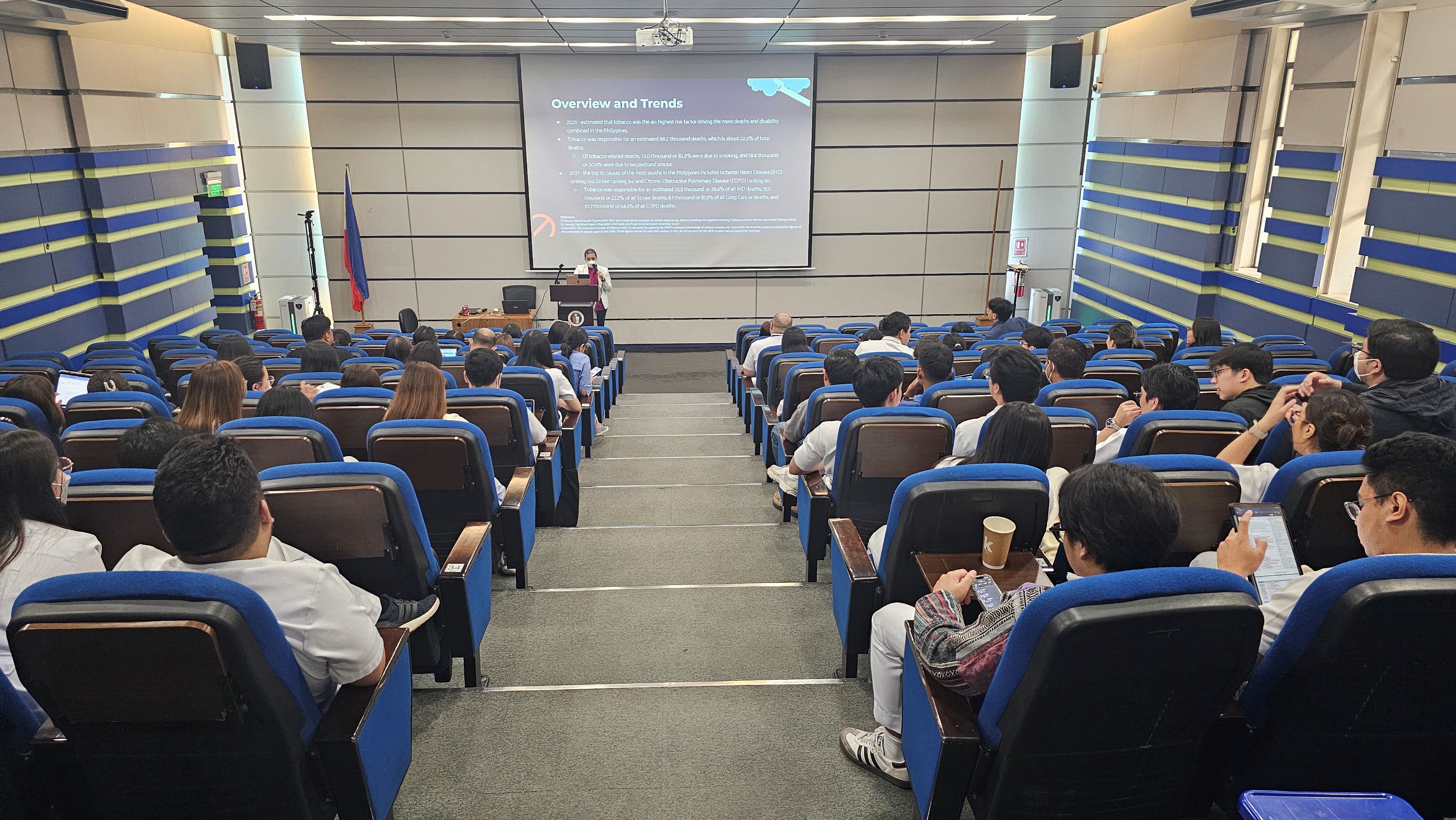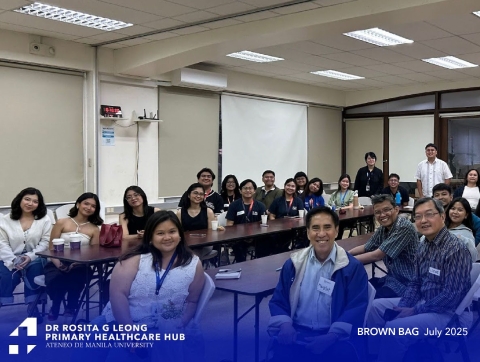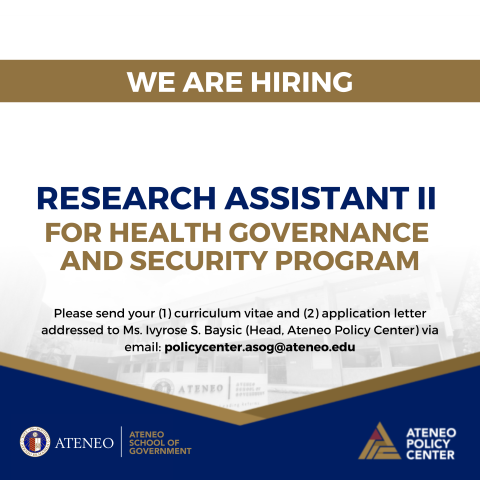ASMPH conducts Smoke and Vape Free Building and Workplace seminar in compliance with Pasig City policies
16 Dec 2024
The Ateneo School of Medicine and Public Health (ASMPH) remains steadfast in its commitment to public health and adherence to Pasig City's regulations on smoke-free establishments. To reinforce this, the ASMPH Office of Health Services, led by Dr. Isa Fernandez and Dr. Jhason Cabigon, organized a seminar on November 29, 2024, to educate students, faculty, and staff on the smoke-free and vape-free policy in compliance with local and national mandates.

Studies underline the pressing need for stringent anti-smoking measures in the Philippines. In 2022, the country ranked 15th globally and 4th in the WHO Western Pacific Region for the highest population of tobacco users. Tobacco use was also identified in 2021 as the fourth leading risk factor for deaths and disability in the country. The seminar emphasized the legal frameworks that form the foundation of ASMPH’s policies, such as Executive Order 26-2017, which bans smoking in public places, and Executive Order 106-2020, which regulates the sale, distribution, and use of electronic nicotine and non-nicotine delivery systems. The Tobacco Regulation Act of 2003 (RA 9211) further underscores the need for vigilance in regulating smoking in public spaces, including educational institutions. Smoking devices addressed in the seminar included cigarettes, e-cigarettes, cigars, hookahs, smokeless tobacco, nicotine pouches, and heated tobacco products.
The discussion also highlighted the far-reaching consequences of smoking. Physically, it is linked to cardiovascular, pulmonary, and cerebrovascular diseases, along with various malignancies, macular degeneration, and teratogenic effects. Beyond health, the environmental impact of smoking is profound. Tobacco farming contributes to deforestation and greenhouse gas emissions, while tobacco waste pollutes water sources, introduces toxic substances to ecosystems, and increases heavy metal contamination. These realities reinforce the urgency of ASMPH’s smoke-free policies.
ASMPH’s commitment to a smoke-free environment is evident in its long-standing policies. In 2009, the university implemented a No Smoking Policy, aligning with the provisions of RA 9211. This was further strengthened in 2012 with a Total Ban on Smoking memorandum, which prohibited smoking across all university premises, including its perimeter, and extended to e-cigarettes and other nicotine delivery systems. These measures reflect ASMPH’s proactive stance on creating a healthy, smoke-free academic environment.
This initiative reflects ASMPH’s unwavering commitment to promoting a healthy environment for its students, faculty, staff, and visitors. By actively upholding these policies, ASMPH not only ensures compliance with government regulations but also takes a firm stand for public health and environmental sustainability. Through education and awareness, the institution continues to pave the way for a healthier, smoke-free community.






